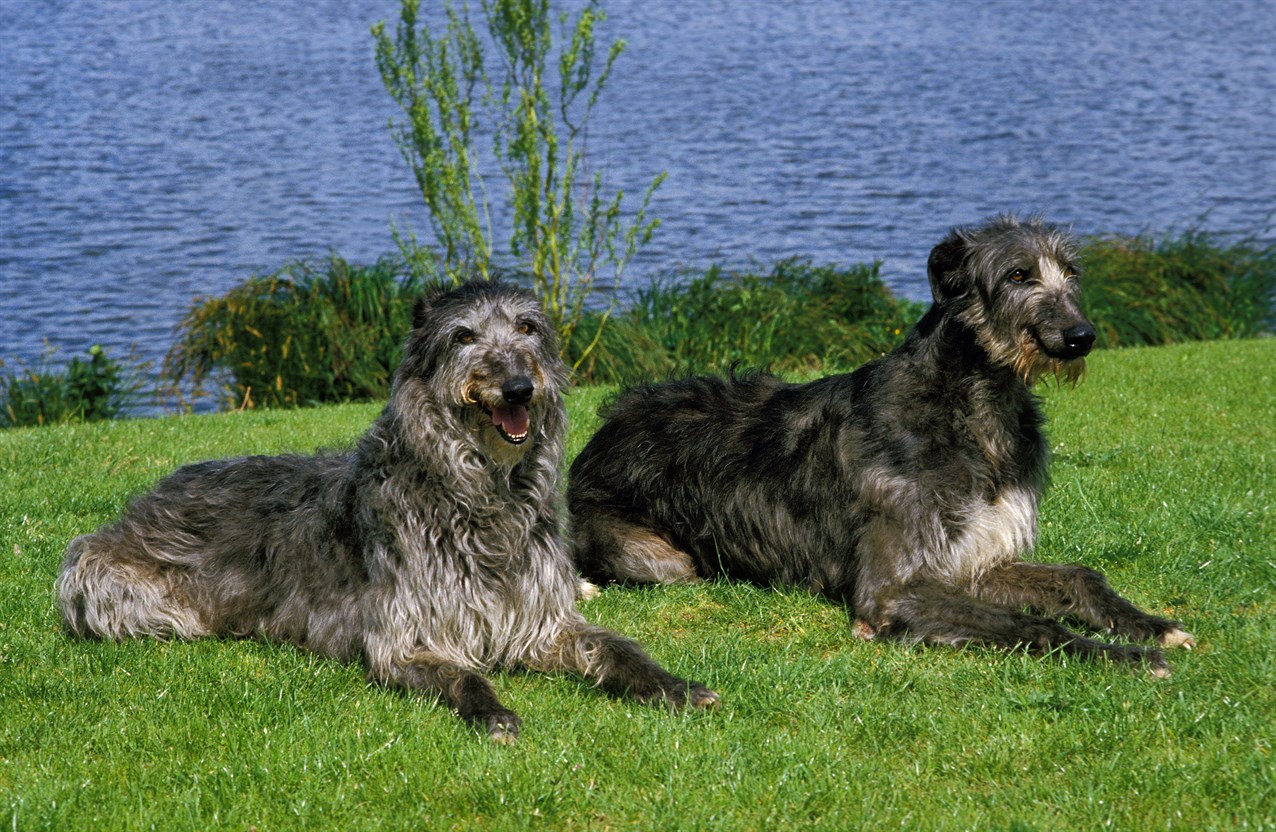Owning a Deerhound: Understanding the Downsides

While Deerhounds are beloved for their regal appearance, gentle nature, and affectionate demeanour, like any breed, they come with certain downsides or disadvantages that prospective owners should consider before bringing one into their lives. These challenges, while not insurmountable, are important to be aware of to ensure a positive and fulfilling experience with your Deerhound companion.
Size and Space Requirements
- Disadvantage: Deerhounds are one of the largest dog breeds, which means they require a significant amount of space to move around comfortably. They may not be well-suited for small living spaces like apartments.
- Mitigation: If you live in a smaller home, ensure you have access to nearby parks and open spaces for daily exercise. Additionally, providing them with a comfortable and spacious indoor living area is crucial.
Exercise Needs
- Disadvantage: Deerhounds have exercise needs that must be met to keep them physically and mentally healthy. Skipping or neglecting their exercise requirements can lead to boredom and potentially destructive behaviour.
- Mitigation: Be prepared for daily walks, playtime, and opportunities for running in a securely fenced area. Incorporating exercise into your routine is essential.
Separation Anxiety
- Disadvantage: Deerhounds are prone to separation anxiety, which can manifest as distress and destructive behaviour when left alone for extended periods.
- Mitigation: Gradual training and companionship can help reduce separation anxiety. Consider having a companion pet or professional help if needed.
Grooming Demands
- Disadvantage: Deerhounds have a wiry coat that requires regular grooming to prevent matting and maintain their overall health. Neglecting their grooming needs can lead to skin issues.
- Mitigation: Be prepared for regular brushing and occasional hand-stripping of their coat. Ensure that you have the time and resources to manage their grooming requirements.
Health Concerns
- Disadvantage: While Deerhounds are generally healthy, they can be susceptible to specific health issues, such as bloat, cardiomyopathy, and osteosarcoma.
- Mitigation: Regular veterinary check-ups and responsible breeding practises can help mitigate these health concerns. Be prepared for potential healthcare costs.
Prey Drive
- Disadvantage: Deerhounds have a strong prey drive due to their sighthound heritage. This can lead to chasing behaviour and a potential risk to small animals.
- Mitigation: Supervision and proper training are essential to manage their prey drive and prevent potential accidents.
Lifespan
- Disadvantage: Deerhounds have a relatively shorter lifespan compared to smaller dog breeds. Their average lifespan ranges from 7 to 9 years.
- Mitigation: While you cannot change their lifespan, you can ensure they have a healthy and fulfilling life by providing proper care, nutrition, and companionship.
In conclusion, owning a Deerhound can be a rewarding and enriching experience, but it's essential to be aware of the potential downsides and challenges associated with this breed. With the right knowledge, preparation, and commitment to meeting their unique needs, you can provide a loving and happy home for your Deerhound companion. Understanding and addressing these disadvantages can help ensure a harmonious and fulfilling relationship between you and your majestic Deerhound.
Deerhound puppies for sale
- Find Deerhound puppies for sale in ACT
- Find Deerhound puppies for sale in NSW
- Find Deerhound puppies for sale in NT
- Find Deerhound puppies for sale in QLD
- Find Deerhound puppies for sale in SA
- Find Deerhound puppies for sale in TAS
- Find Deerhound puppies for sale in VIC
- Find Deerhound puppies for sale in WA